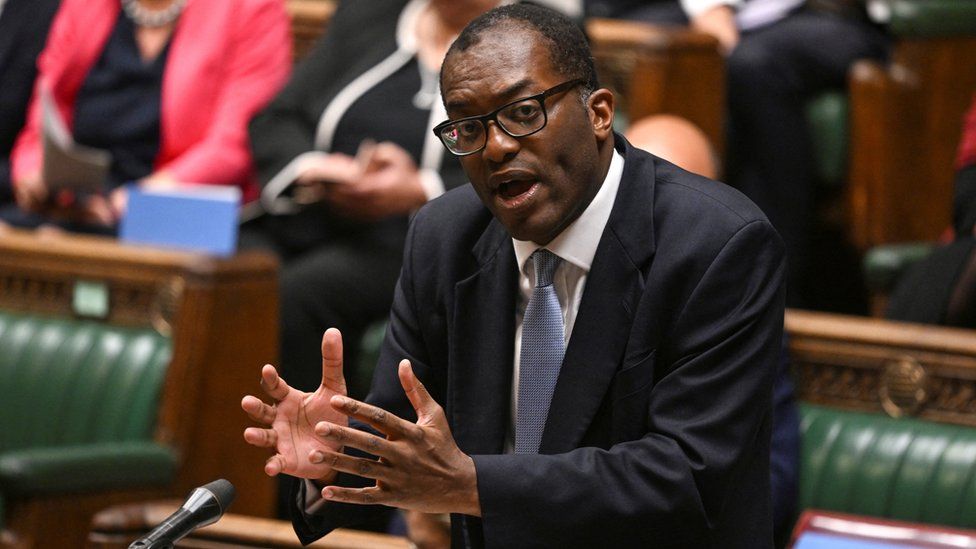ARTICLE AD BOX
By Chris Mason
Political editor, BBC News
 Image source, UK Parliament/Jessica Taylor
Image source, UK Parliament/Jessica Taylor
For something that wasn't even technically a Budget, it was one heck of a statement of intent from the new prime minister and new chancellor.
A massive leap in a new direction.
It amounts to the wholesale shredding of previous economic policy: both the ones adopted by Conservative governments over the last 12 years (which Liz Truss sat within for most of that time) and those of Labour before that.
It is an all-or-nothing strategy, where the prime minister will own the consequences, good or bad.
Economic growth is the prize they seek.
But they can't be certain their approach will work, nor the methods they have chosen to deliver it will be popular.
And then there are the side effects.
The markets are jittery. The value of the pound is slumping and the cost of government borrowing is rising, just when the government has said it going to borrow a shedload more money.
A few around here with a taste for political history have been making comparisons with the so-called 'Barber boom'.
A senior Labour figure was the first to mention it to me just as Kwasi Kwarteng prepared to get to his feet in the Commons.
And a few hours later, so did Paul Johnson from the Institute for Fiscal Studies.
The Barber boom is a reference to the stint in the Treasury of former Conservative chancellor Anthony Barber, when Ted Heath was prime minister.
Mr Barber cut taxes big time, particularly in 1972 - it being the only Budget in the last half century to cut taxes more than Kwasi Kwarteng just has.
Mr Barber wanted a "dash for growth". He borrowed money, cut taxes and the economy grew.
But strikes, unemployment and inflation followed, and the Conservatives lost the next general election.
Things are different now: unemployment is low, the Bank of England controls interest rates.
But don't be surprised if we hear more of Mr Barber's stewardship of the economy in the coming months, particularly from those sceptical about Mr Kwarteng's plans.
So, given the risks, and the historical precedent, why is the government choosing this approach?
They argue this is a calculated and worthwhile thing to do, because to do nothing, to maintain the status quo, would be a bigger gamble still.
And yes, growth has been sluggish for years and years, and the economy teeters on the edge of - or is perhaps already in - recession.
So few would dispute doing something to catalyse the economy, one way or another.
They do, though, have a big persuasion job on their hands, including, incidentally, among some on their own side.
There is a bunch of Conservative MPs who have never warmed to Liz Truss, and some who are hostile towards her political instincts.
One or two have already said as much publicly, others are keeping their thoughts to themselves for now.
Some fret the plan doesn't look fair, given the scale of the tax cuts for the richest.
Others see it as a sugar hit for the economy which runs the risk, they fear, of stoking inflation further.
For others though, in the parliamentary party and among the grassroots, this is a moment they can gladly cheer: what they see as a properly Conservative budget after all those years of coalition compromise, Brexit and Covid.
Which brings us to the coming political argument: the government hopes this set of measures will give the economy a giant injection of oomph.
It will certainly give politics that: the dividing lines between the Conservatives, Labour and others are bold and stark.

 2 years ago
54
2 years ago
54








 English (US) ·
English (US) ·